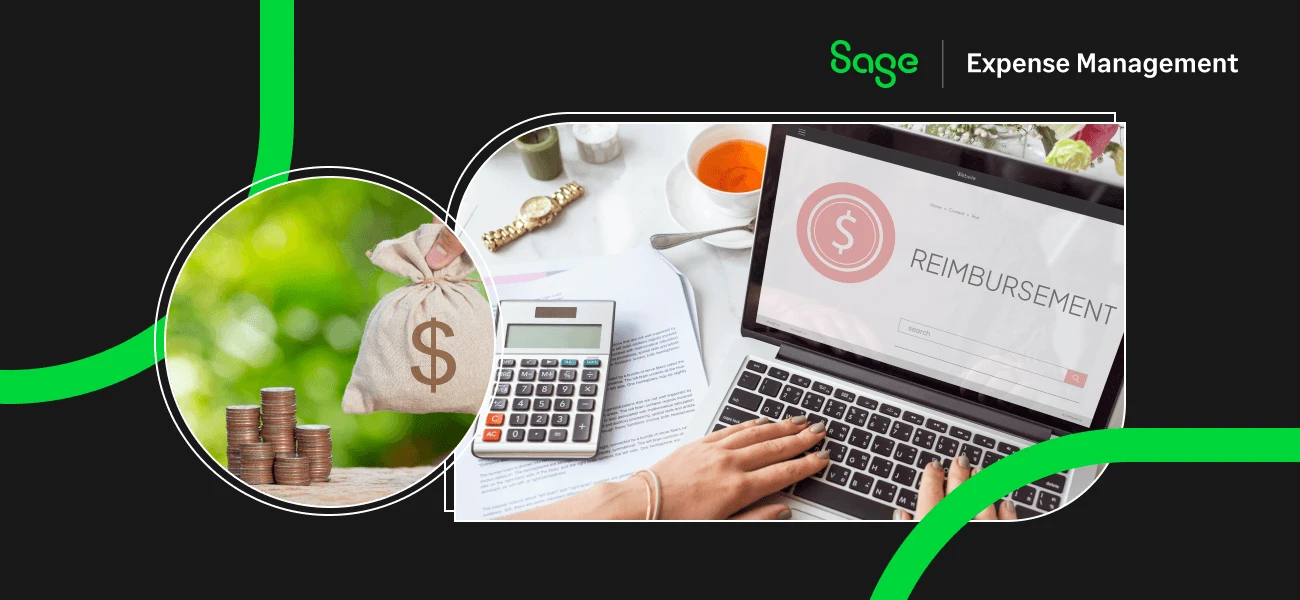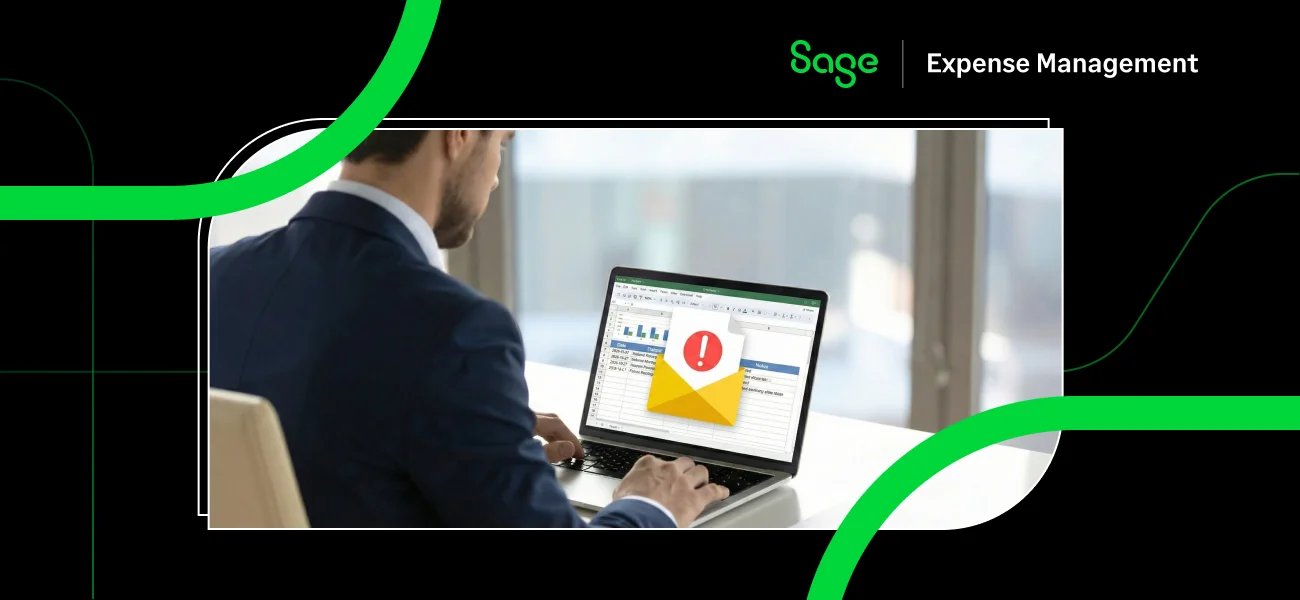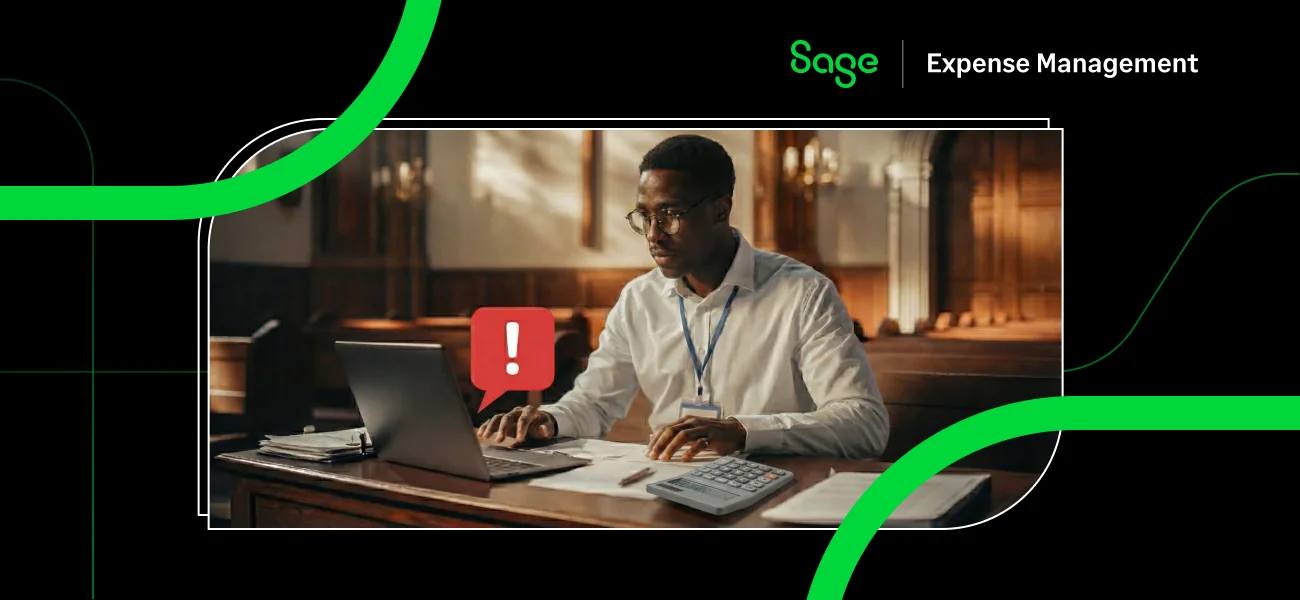Is your nonprofit properly accounting for its expense reimbursements?
In 2024, there are about 1.5 million registered nonprofit organizations in the United States, including public charities, private foundations, and other entities like chambers of commerce and civic leagues. Most of these are 501(c)(3) organizations eligible for tax-deductible donations.
Registering as an official nonprofit comes with tax benefits, but to maintain them, your organization must accurately account for all expenses and revenue, including reimbursements to volunteers or employees for business-related expenses.
The best way to manage these reimbursements is to implement a solid, IRS-compliant reimbursement policy for your entire organization.
Follow the following guidelines to get started.
Common Expenses Incurred By Non-Profits
Before establishing a reimbursement policy, it’s important to understand the types of expenses your organization may face. Typical expenses related to nonprofit operations include:
- Personnel costs: salaries, bonuses, health and life insurance, disability coverage, tuition reimbursement, retirement contributions, and other employee benefits.
- Operating costs: rent or mortgage payments, utilities, debt and interest payments, local taxes, office supplies, and electronic purchases.
- Functional costs: marketing, public relations, sales, and IT services.
- Administrative costs: administrative staff salaries, accounting, legal, and HR services, business insurance, travel expenses, and depreciation.
- Developmental costs: volunteer recruitment and appreciation, fundraising events like dinners, walk-a-thons, silent auctions, and community fundraisers.

What Expenses Can I Reimburse?
You can reimburse your volunteers for all the work-related expenses they’ve incurred. However, there are two things to consider:
IRS Regulations
Volunteer expenses should be reimbursed following the IRS guidelines applicable to other business expenses like rent or salaries. Essentially, these expenses must be both ordinary and necessary for the operation of your organization.
What are Ordinary and Necessary Expenses?
An ordinary expense is typical and widely accepted within your industry, while a necessary expense is one that is useful and suitable for your trade or business. It’s important to note that an expense doesn’t need to be essential to qualify as necessary.
Internal Policy
Your organization can establish its own expense policy to address specifics, such as whether employees can fly business class or charge large dinners or client events. A well-defined expense policy ensures everyone understands which expenses are eligible for reimbursement.
What Does an Expense Reimbursement Policy Look Like?
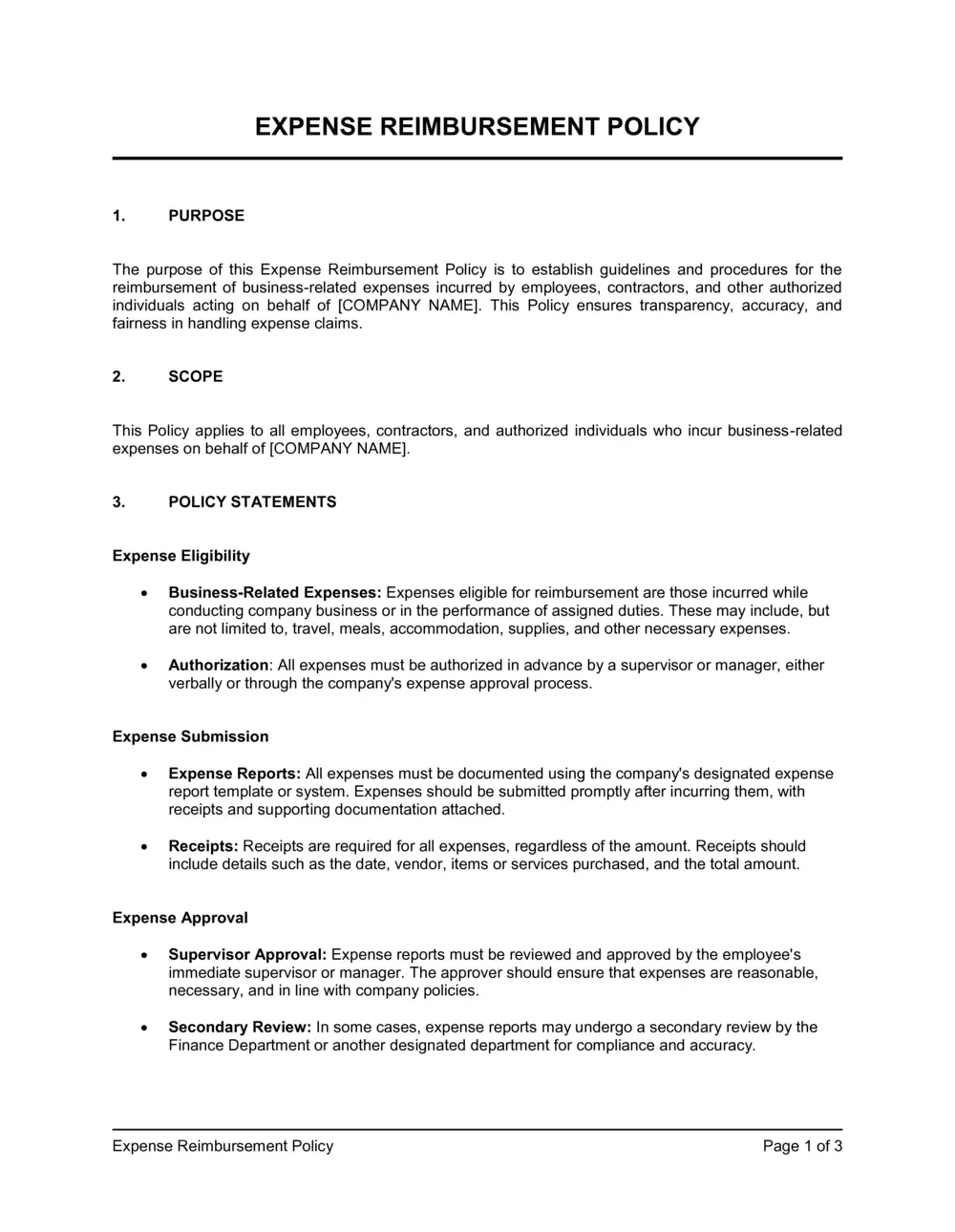
Accountants typically need to manually verify expense reimbursement requests to ensure that they comply with company policy, which can take days or even weeks.
Here’s how expense reimbursement software can streamline the process and enforce policies with just one click:
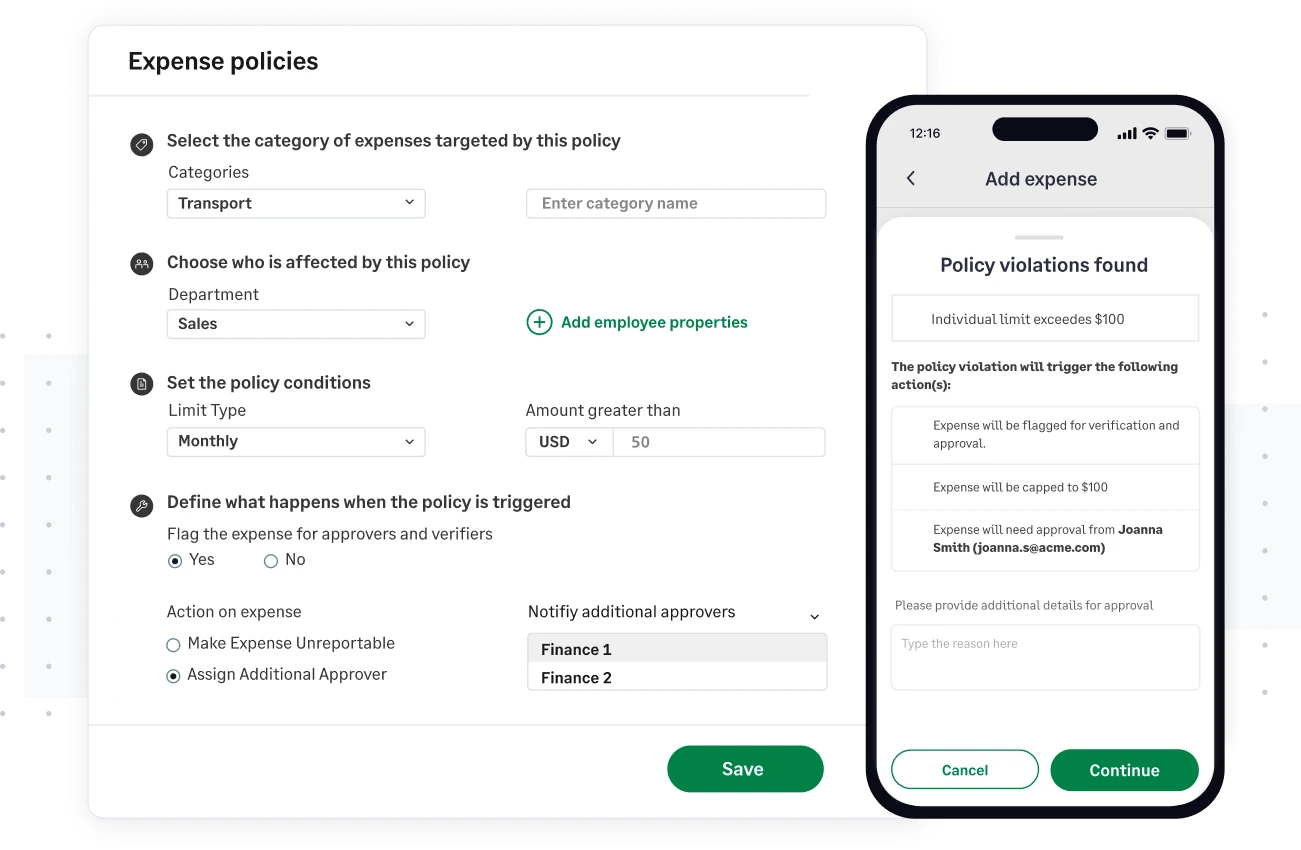
See how the Sage Expense Management platform can automate expense reimbursements for your entire organization.
How Can Nonprofits Report Their Business Expenses?
Nonprofits must accurately report any expenses they incur on IRS Form 990. This form is crucial for documenting expenses directly related to the operation of your organization for the fulfillment of its mission. These expenses are considered reasonable business expenses.
Often, volunteers pay operational costs from their own pockets. You can issue non-taxable reimbursements for these expenses, but proper documentation is essential. Without it, the IRS cannot verify that these reimbursements should be exempt from federal or payroll taxes. Any undocumented expenses are classified as employee compensation and are subject to federal business amd employment taxes.
What If My Organization Generates Income That’s Not Tied To Its Mission?
This will be classified as unrelated business income. If this income exceeds $1,000, your nonprofit must join the 46,000+ organizations that file the Form 990-T, the business income tax form for exempt organizations.

Also read:
Creating A Nonprofit Expense Reimbursement Policy Per IRS Guidelines
When setting up a reimbursement policy for your non-profit, it's crucial to understand the distinction between accountable and unaccountable plans, as defined by IRS guidelines.
Unaccountable Plan
An unaccountable plan lacks the structured requirements of an accountable plan. Under an unaccountable plan:
Benefits
- Flexibility: Less stringent requirements for documentation and timeliness may simplify the process for both employees and administrators.
Drawbacks
- Tax implications: Reimbursements are treated as taxable income, requiring them to be reported on employees’ Form W-2. This means they are subject to payroll taxes and income tax withholding.
- Potential for abuse: Without strict oversight, there is a greater risk of non-business-relatd expenses being reimbursed.
Accountable Plan
An accountable plan is a structured approach to handling expense reimbursements that align with IRS requirements. Under an accountable plan:
Benefits
- Tax exclusion: Reimbursements are not considered part of employees’ wages and therefore are not subject to payroll taxes or income reporting.
- IRS compliance: Expenses are reimbursed tax-free if they are substantiated with adequate documentation.
- Reducing reporting burden: Since these expenses are not included in employees’ gross income, they do not need to be reported on Form W-2, simplifying tax reporting for both the organization and employees.
Drawbacks
- Strict documentation requirements: Employees must provide detailed invoices and receipts.
- Timeliness constraints: Employees and volunteers must submit their expense claims within a reasonable period (typically 120 days) and return any unspent cash advances within 60 days.
- Complex administration: Maintaining rigorous compliance with these rules requires diligent record-keeping and monitoring.
Implementing an Accountable Plan
To create a compliant reimbursement policy for your non-profit:
- Document all expenses: Ensure that all reimbursements are accompanied by thorough documentation, including invoices and receipts.
- Timely submission: Require that employees and volunteers submit their expense claims within a reasonable period, generally within 120 days of incurring the expenses.
- Return unspent funds: If cash advances are provided, they must be returned within 60 days if not used for business purposes.
Best Practices For A Nonprofit Expense Reimbursement Policy
Creating a clear and thorough reimbursement policy is essential for maintaining IRS compliance and ensuring smooth financial operations within your non-profit. Here’s how you can setup an effective expense reimbursement policy:
Standardize Documentation
Ensure all employees and volunteers use a uniform expense reimbursement form. This form should address the following questions:
- When was the payment made?
- How much did it cost?
- What was the nature of the expense?
- How does it relate to the organization’s mission and purpose?
- Who benefitted from the expense?
- Were there any supporting documents, such as receipts or invoices?
Feeling overwhelmed? Let us handle the hassle.

Simply snap a photo of your receipt and watch as the Sage Expense Management platform magically extracts details like date, amount, merchant, and category. It even matches expenses to your Chart of Accounts, saving you countless hours. No more manual data entry or tedious expense coding.
Encourage Timely Submissions
Include guidelines in your policy stating that all receipts, petty cash slips, and invoices related to each expense must be submitted within a specific timeframe, such as 30 days after the expenses are incurred.
Define Reimbursement Rates
Specify the reimbursement rates for various types of expenses in your policy. While you may choose to cover the full amount, adhering to federal reimbursement rate guidelines is recommended for consistency and compliance.
Ensure Awareness
Communicate the reimbursement rates and policy standards clearly to everyone in the organization. Regular training or reminders can help keep everyone informed about the reimbursement process.
Consider IRS Exemptions
The IRS does provide some exemptions regarding reimbursement documentation:
- Costs under $75 that do not involve lodging
- Transportation expenses for which receipts are not readily available
- Per-diem allowances for out-of-town travel
While these exemptions can simplify the process, it is best practice to maintain thorough records wherever possible to avoid potential issues.
{{find-an-accountant="/cta-banners"}}
Implement an Expense Reimbursement System
The Sage Expense Management platform gives you seamless expense tracking and real-time visibility across your nonprofit spending. You can streamline receipt management, ensure compliance with grant regulations, and optimize donor fund management effortlessly. Here’s how:
Effortless Receipt Capture and Tracking
Empower your team to manage expenses on the go. With our software, volunteers and employees can easily capture receipts via text message, mobile app photo uploads, or e-receipts from Gmail and Outlook. Our AI-driven OCR technology processes and categorizes data in real-time, reducing manual entry.

Automate Expense Coding
Say goodbye to manual coding. Our platform automatically captures and categorizes expense details—currency, categories, projects, merchants, locations, and more—aligning them with your Chart of Accounts, minimizing manual effort.
Real-Time Credit Card Spend Monitoring
We integrate with Visa and Mastercard to give you real-time business credit card transaction notifications. This allows you to monitor donor fund usage immediately without waiting for end-of-month bank statements to understand spending patterns.
Seamless Integration with Accounting Software
We integrate directly with major accounting platforms like QuickBooks Online, Sage Intacct, Xero, and NetSuite. You can import essential data and export expenses as Bills, Journal Entries, or Credit Card Charges in real time, streamlining your accounting processes.
Smart Mileage Tracking and Per Diem Management
The Sage Expense Management software is powered by Google Maps which effortlessly tracks mileage. You can set mileage rates and manage per diem expenses according to IRS guidelines, employee levels, and locations.
Ensure Compliance and Audit-Readiness
Configure business rules to comply with grant regulations and internal policies. Our automated checks prevent fraud and duplicate expenses, ensuring you remain audit-ready with detailed digital audit trails and comprehensive reporting.
Industry Leading Customer Support
Benefit from our exceptional 24/7 chat and call support with a response time of under 30 minutes, ensuring you always have assistance when needed.
{{expense-reporting="/cta-banners"}}



.webp)
